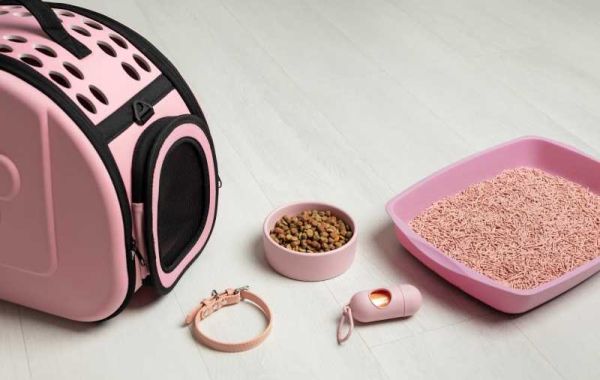Taking care of small animals like rabbits, guinea pigs, and other rodents depends much on dental health. These animals have always growing teeth, which, if neglected improperly, can cause major dental problems. In this regard, Timothy Hay is quite important in preventing these issues since it provides a natural and efficient approach to maintaining the dental condition of our small companions. The value of hay in small animal diets and how it helps to avoid dental problems are matters that we are ready to discuss in this article.
Typical Dental Issues Affecting Small Animals
Teeth grow constantly in little animals throughout their lifetime. Although this ongoing development is a natural process, consistent wear is necessary to stop overgrowth. Should the teeth fail to wear down enough, major dental issues, including too long teeth—which might hinder the animal from chewing properly—may arise. Weight loss, malnutrition, and sometimes even severe infections might follow from this.
Malocclusion, the disorder in which teeth do not align properly and do not wear down uniformly, is among the most often occurring dental issues. Malocclusion can seriously disrupt chewing and create great discomfort, therefore compromising the animal's quality of life. Severe cases may call for surgical treatment, which can be taxing for the owner as well as the animal.
For tooth wear in tiny animals, constant chewing is absolutely vital. These animals instinctively chew on fibrous plants in the environment to maintain ideal length of their teeth. In captivity, though, it is the owner's duty to create surroundings and food that allow for this natural wear process. This is where Timothy Hay enters the picture—a perfect meal for preserving your pet's dental health.
How Hay Promotes Dental Health
One of the greatest feeds for small animals' natural tooth wear is Timothy Hay. Its fibrous character is ideal for wearing down teeth and stopping overgrowth. Unlike other foods that could be softer or less fibrous, it calls for more strong chewing, which promotes even tooth wear.
Furthermore, crucial for this type of food is that it should be given constantly. Hay should be always available to little animals since it guarantees that chewing is a continuous activity. Constant chewing on hay fibres helps the animals' teeth naturally and healthily wear down, therefore reducing dental issues.
Hay is far more efficient than other diets in avoiding tooth problems. For instance, although they might have some minerals, pellets and other processed foods lack the same resistance and requirement for chewing as hay. Some varieties of hay, like alfalfa, can also be overly heavy in calcium and calories, which would cause severe health problems if taken in too great quantities.
How to Choose and Offer Hay for Maximum Benefits
Choosing hay for your pet depends much on quality. Search for hay free of mould or dust, green, and fresh. Low-quality hay not only will be less effective in wearing down teeth, but it may also not be as enticing to your pet, which could lower consumption and so result in dental problems.
Furthermore, crucial are your frequency and volume of offering hay. It should ideally be always accessible so the animal may chew whenever it feels necessary. Even if it might appear like you are wasting a lot of hay, consider the long-term advantages it offers for the oral condition of your pet. Regular chewing on hay will help an animal maintain good teeth and avoid expensive veterinary treatments for dental issues.
Combining hay with other nutritious foods, such fresh vegetables and premium pellets, can help to guarantee a balanced diet. Still, hay should be the main meal in the diet since it is the one that guarantees appropriate dental wear. See a veterinarian for specific advice on what meal combinations are best for your pet or how much hay you should provide.
The Importance of Hay in Promoting Digestive Health
Apart from its vital contribution to preserving oral health, Timothy Hay is also essential in sustaining the digestive health of small animals such rabbits, guinea pigs, and chinchillas. These animals have a sensitive digestive system that depends mostly on a high-fibre diet to run as it should. Rich in fibre, it aids in digestion control and avoidance of frequent gastrointestinal problems resulting from a diet devoid of enough fibre.
The capacity of this food to encourage consistent bowel motions is among its main advantages. The hay's high fibre content guarantees that food passes easily through the digestive tract, preventing blockages and lowering the danger of disorders, including gastrointestinal stasis, a possibly fatal condition whereby the digestive system slows down or stops entirely. Regular use of hay helps preserve good gut flora, which is necessary for correct digestion and general well-being.
Moreover, Timothy Hay's continuous chewing promotes salivary secretion, which not only facilitates digestion but also helps stop hairballs from developing in animals like rabbits. If hairballs build up in the stomach or intestines and cause discomfort or perhaps surgical intervention is required, this can become a major problem. Hay reduces the hazards related to hairball development by maintaining the digestive system active and well-lubricated. One of the easiest but most powerful strategies to guarantee your pet's digestive health is including hay in their regular meal.
Conclusion
Preventing dental problems in tiny animals depends much on Timothy Hay. Hay naturally wears down teeth via its fibrous texture and requirement for continuous chewing, therefore reducing overgrowth and other dental problems. The greatest approach to guaranteeing your pet's oral health is always offering premium types of hay together with a balanced diet. You should be sure the hay is always accessible for your pet and pay attention to its quality. This will help your tiny animals be generally healthy and help to avoid dental issues. See a veterinarian for the best recommendations on dental care and your pet's nutrition; also, investigate the several hay products on the market to provide your animal friend with a good and happy life.








